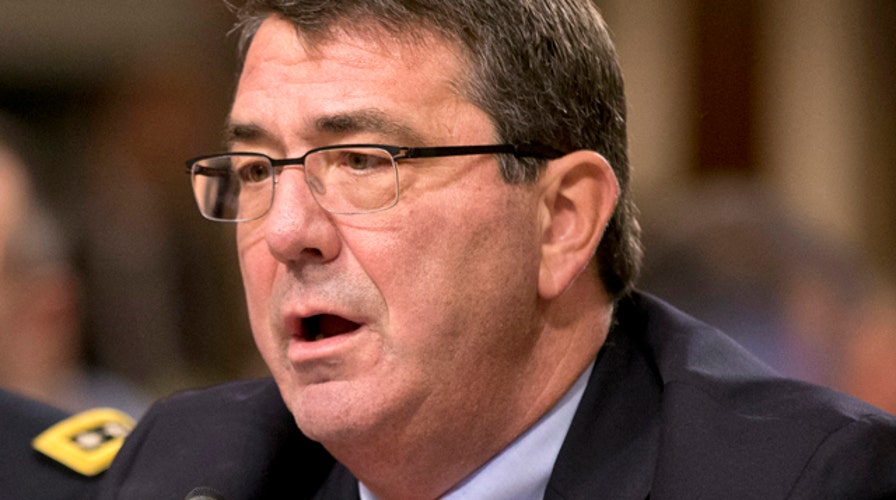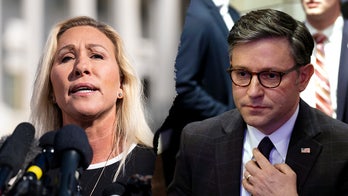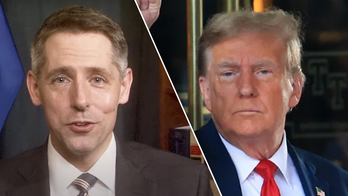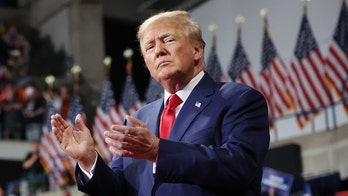Ashton Carter expected to be nominated as defense secretary
Rep. Smith calls ex-Pentagon official an 'outstanding' choice
President Obama on Friday announced former Pentagon official Ashton Carter as his choice to lead the Defense Department, calling him one of America's top national security leaders who has a "relentless dedication to our armed services."
The president's selection of Carter, 60, who was deputy defense secretary from October 2011 to December 2013, was widely rumored but not confirmed by the White House until now.
If confirmed by the Senate, Carter would be Obama's fourth Pentagon chief in his roughly six-year administration. The development comes less than two weeks after Secretary Chuck Hagel abruptly resigned under White House pressure, after less than two years on the job.
Hagel did not attend Friday's announcement, but released a statement saying he strongly supports the nomination.
Hagel has remained mum on what led to his departure. He reportedly left amid frustration that he did not have access to the president's inner circle. Questions remain as to whether the Carter will be able to surmount the obstacles that had hindered his predecessor, Rep. Buck McKeon, R-Calif., chairman of the House Armed Services Committee, told Fox News on Friday. "That is something that Ash is going to have to deal with," he said.
Obama said his new nominee has a breadth of experience in the Pentagon and Capitol Hill and is well-prepared for current defense challenges overseas, including the fight with the Islamic State in Iraq and Syria.
"I accept the offer because of the deep respect and admiration that Stephanie and I have for the men and women in uniform," Carter said, referring to his wife Stephanie Carter, who was in attendance. "If confirmed for this job, I pledge to you my most candid, strategic advice," he said to the president.
Carter's former role was essentially that of chief operating officer. Before he served as deputy defense secretary, he was the Pentagon's technology and weapons-buying chief for more than two years.
He did not agree with the complete pull-out of U.S. combat forces from Iraq in 2011 and was one of a coterie of top Pentagon officials who would have preferred to leave a residual force behind. The White House says the withdrawal was necessary as Washington could not come to an agreement with then-Iraqi Prime Minister Nouri al-Maliki to keep the troops there with immunity.
During the administration of President Bill Clinton, he was assistant secretary of defense for international security policy. Before that, he was director of the Center for Science and International Affairs at Harvard University's John F. Kennedy School.
Carter has bachelor's degrees in physics and medieval history from Yale University and received his doctorate in theoretical physics from Oxford University, where he was a Rhodes Scholar.
In national security circles Carter is closely associated with a concept he and former Defense Secretary William Perry championed in the 1990s. They called it "preventive defense." Its basic premise is that in the aftermath of the Cold War the U.S. could forestall major new security threats by using defense diplomacy - forging and strengthening security partnerships with China, Russia and others.
Carter's view of U.S. defense priorities appears to fit well with the Obama agenda, including better minding of defense alliances and partnerships in Asia and the Pacific, as well as more attention on cyber-defense and countering the spread of weapons of mass destruction.
In remarks in July 2013 at the Aspen Security Forum, Carter said the country was ready to move beyond the wars in Iraq and Afghanistan and to look harder at future threats, including cyber attacks. That was one month before Obama announced the start of a bombing campaign against the Islamic State group in Syria and Iraq.
Carter's point was that the Pentagon had entered an era of transition that requires fresh thinking. He said that effort could be stymied by across-the-board budget cuts in 2016 if Congress does not act to erase the budget-cutting law called sequestration.
"First of all, we need to get back to some issues that we've taken our eye off a little bit over the last decade," he said, adding, "We need to reinvest and get back in the game."
The Associated Press contributed to this report.





